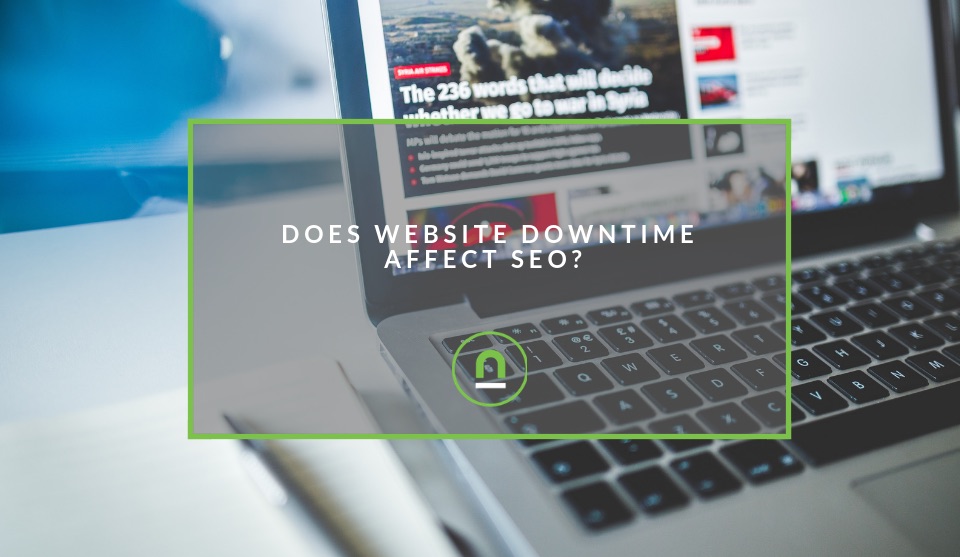Recent posts

Shopaholics
How to Choose A Perfect 2-Seater Couch for Small Spaces
28 February 2025

Money Talks
How Crypto Technology Continues To Revolutionise The Business World
27 February 2025

nichemarket Advice
How to Choose the Best Copy Trading Platforms for Maximum Return
24 February 2025

Mind, Body & Soul
A Guide to Cannabis Seeds in South Africa
21 February 2025
Popular posts
Extravaganza
Trending Music Hashtags To Get Your Posts Noticed
24 August 2018
Geek Chic
How To Fix iPhone/iPad Only Charging In Certain Positions
05 July 2020
Extravaganza
Trending Wedding Hashtags To Get Your Posts Noticed
18 September 2018
Money Talks
How To Find Coupons & Vouchers Online In South Africa
28 March 2019
Does Website Downtime Affect SEO?
17 September 2019 | 0 comments | Posted by Che Kohler in nichemarket Advice
If you're running an online business, then traffic is the lifeblood and core metric for all your efforts. Making sure you have highly qualified traffic from your various channels and ensuring once the user lands on your site, they find what they want and convert.
One of the worst things that can happen to a site owner is seeing the site go down due to load issues or a bug in the code bringing down the entire website.
While we all try to avoid this costly issue, it can and will happen eventually, and you need to be ready in case that happens. If you rely on paid advertising, you need to be able to switch it off at a moments notice, however, with organic traffic, it's not that simple.
Many successful businesses invest a small fortune into content and search engine optimisation of their sites, with an emphasis on Google search rankings.
However, no matter how well your site is optimised for Google and the other search engines. If your website shows extended periods of downtime without proper preparation, your search engine rankings can take a hit.
How do search engines handle downtime?
When it comes to website monitoring, many website owners are curious to know how downtime affects their SEO strategy. While relevancy is the most crucial factor when it comes to search factors, including downtime, can play a role in the results as well.
If your site is down for short periods, it should not affect your SEO too much, but as you move into extend periods. The downtime period is especially important if you're ranking for high volume keywords. Your rankings can take a hit as Google aims to service users queries as best as possible.
Minimal downtime is negligible
A certain level of downtime is unavoidable. Most websites are lucky if they reach 99% uptime. That still leaves over three and a half days a year of downtime.
Fortunately, Google understands this, and the occasional outage won't affect a website's rankings on Google as page reindexing isn't always captured during downtime.
If your site is offline more often than most, then you'll start to have a problem.
Reduce the frequency of downtime
Unreliable websites will not rank high in Google's search results. Google uses a series of algorithms to search through millions of sites in the blink of an eye.
If these search engine spiders discover that your site is down, they will move onto the next search result. If your website goes down consistently, Google will flag your website as unreliable.
Google does its best to prevent unavailable sites from appearing at the top of the list. If users click on nonexistent sites, it then begins to reflect poorly on Google.
Have reliable web hosting
Web hosts cause a majority of site outages. If your site is experiencing some technical difficulties, it might be time for an upgrade.
Alert your web host of any problems that you're experiencing. If they don't fix the problem after a short while, try finding a web host that cares about the success of your website.
Invest in website monitoring
Running a successful SEO strategy goes hand-in-hand with website monitoring. If your site is slow, unresponsive, or entirely unavailable for users, Google will punish you with a lower search ranking.
If you're investing a considerable amount of money and time on a rigorous SEO strategy, you need to invest in a website monitoring service as well.
There are various website monitoring tools you can subscribe to that can help keep track of downtime and alert you immediately of any issues so you can take corrective action.
The dreaded 500 error
When a site goes down typically, all pages are rendered dead, and the server returns a 500 header code.
The 500 Internal Server Error is a very general HTTP status code that means something has gone wrong on the web site's server. The issue with a 500 error is that, but the server could not be more specific on what the exact problem is with the website.
To google this could mean the site is down for good and it can consider this the longer your downtime. If Google bot does notice your prolonged 500 error serving it may choose to demote your content in favour of content that can satisfy the user's query.
You will then need to earn back those rankings once your site is back up.
Try serving a 503 error with a maintenance page
If you do plan scheduled maintenance or your site does go down for some reason the best course of action would be to serve a maintenance page along with a 503 server error.
The maintenance page can also be used to inform users of the issue, get them to sign up for communication via your email database or follow your social pages. The maintenance page helps reduce bounce rate and acquire leads you can use to bring back traffic once your site is back up.
The 503 Service Unavailable error is an HTTP status code that means the website's server is not available right now.
The 503 error will indicate to crawlers that a 503, that your site is down but will be back shortly and won't affect your website too severely in terms of rankings should you have extended downtime.
Contact us
If you would like us to set up your SEO or want to know more about digital marketing for your business, then don’t be shy we’ re happy to assist. Simply contact us
Are you looking to promote your business?
South African Business owners can create your free business listing on nichemarket. The more information you provide about your business, the easier it will be for your customers to find you online. Registering with nichemarket is easy; all you will need to do is head over to our sign up form and follow the instructions.
If you require a more detailed guide on how to create your profile or your listing, then we highly recommend you check out the following articles.
Recommended reading
If you enjoyed this post and have a little extra time to dive deeper down the rabbit hole, why not check out the following posts on SEO.
You might also like
Exploring Eco-Friendly Materials for Laser Cutting Projects
11 February 2025
Posted by Candice Reed in Constructive Criticism
Are you looking for environmentally friendly materials for laser cutting projects? We take a look at the various materials that would fit your requir...
Read morePermission-Based Marketing: Why Opt-Ins Are Non-Negotiable
07 February 2025
Posted by Alejandra Leyva in Industry Experts
Learn all about permission-based marketing and why it is key for genuine customer engagement. Learn why opt-ins are non-negotiable for building trust...
Read more{{comment.sUserName}}
{{comment.iDayLastEdit}} day ago
{{comment.iDayLastEdit}} days ago
 {{blogcategory.sCategoryName}}
{{blogcategory.sCategoryName}}


